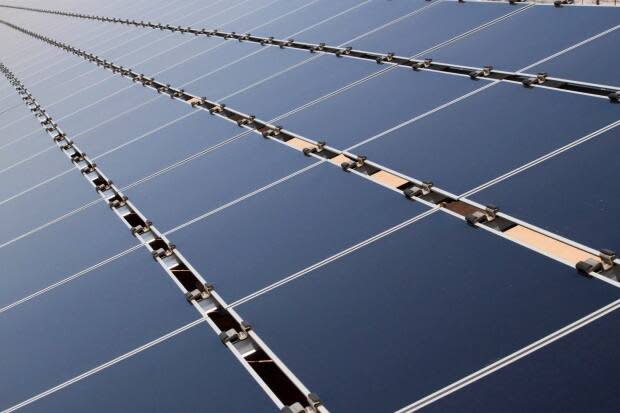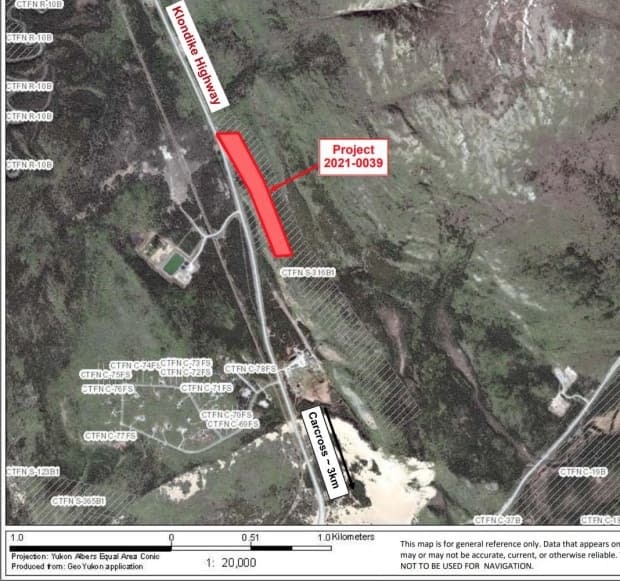Carcross solar project would be biggest in Yukon, CEO says

A proposed solar farm in southern Yukon will be the biggest the territory has ever seen if built, according to the CEO of the Carcross/Tagish Management Corporation.
Taylor Love said the project, located roughly three kilometres north of Carcross, would be powerful enough to supply enough electricity to the majority of the Southern Lakes region and country residential subdivisions near Whitehorse — at least during the sunniest times of year.
"The comments [from the First Nation] have been very, very proud of us for moving forward on a project like this," Love said. "And I think it's a proud moment for the Yukon as well to be able to bring this type of green energy project and this type of scale to the Yukon."
The project is currently in front of the Yukon Environmental and Socio-economic Assessment Board (YESAB). A public comment period on the proposal is open until June 22.
The project is four megawatts, powerful enough to electrify an average of 400 homes per year, Love said.
According to a population report produced by the Yukon Bureau of Statistics, that would be like powering the Whitehorse neighbourhood of Crestview.
There would be 9,600 panels that make up the solar farm, the proposal states.

"The project will consistently produce energy for at least 30 years and hopefully get rebuilt after that," Love said.
According to the proposal, the Carcross/Tagish Management Corporation is seeking to have the project completed in the fall of 2022.
'The Yukon is a leader in this'
Solar farms are cropping up across Yukon — even in communities that aren't connected to the main grid. There's now an operational solar farm in Old Crow. White River First Nation also put forward plans for its own solar array, which the Yukon government signed off on around this time last year.
Love said more solar farm projects are indicative of governmental support.
"It all comes down to government policy on whether or not the economics make sense and they've found that sweet spot in pricing that makes sense for these projects to work in the North," he said.
"It's amazing that the Yukon is a leader in this."
The policy Love referred to is the independent power producer program, which allows communities, residents and businesses to sell renewable energy to the utility.
Andrew Hall, the president and CEO of Yukon Energy, told CBC two solar projects have electricity purchase agreements in place.
There are 10 applications in front of Yukon Energy right now, including the one belonging to the Carcross/Tagish Management Corporation, he said.
"Now, chances are not all 10 of them are going to move forward, but it's encouraging," Hall said, adding the Carcross project is indeed one of the larger projects.

Hall said there's another benefit to these solar projects — it's hoped that one day the energy they generate will be stored then used during the wintertime, when diesel use is at its highest (Yukon Energy is working to supplant fossil fuels with renewable energy).
Part of Yukon Energy's 10-year energy plan includes building a pumped storage facility at Moon Lake in northern B.C.
"The solar projects together with Moon Lake, you know, those two pieces of the puzzle create a really nice solution to the challenge that's ahead of us," Hall said. "They kind of complement each other."

